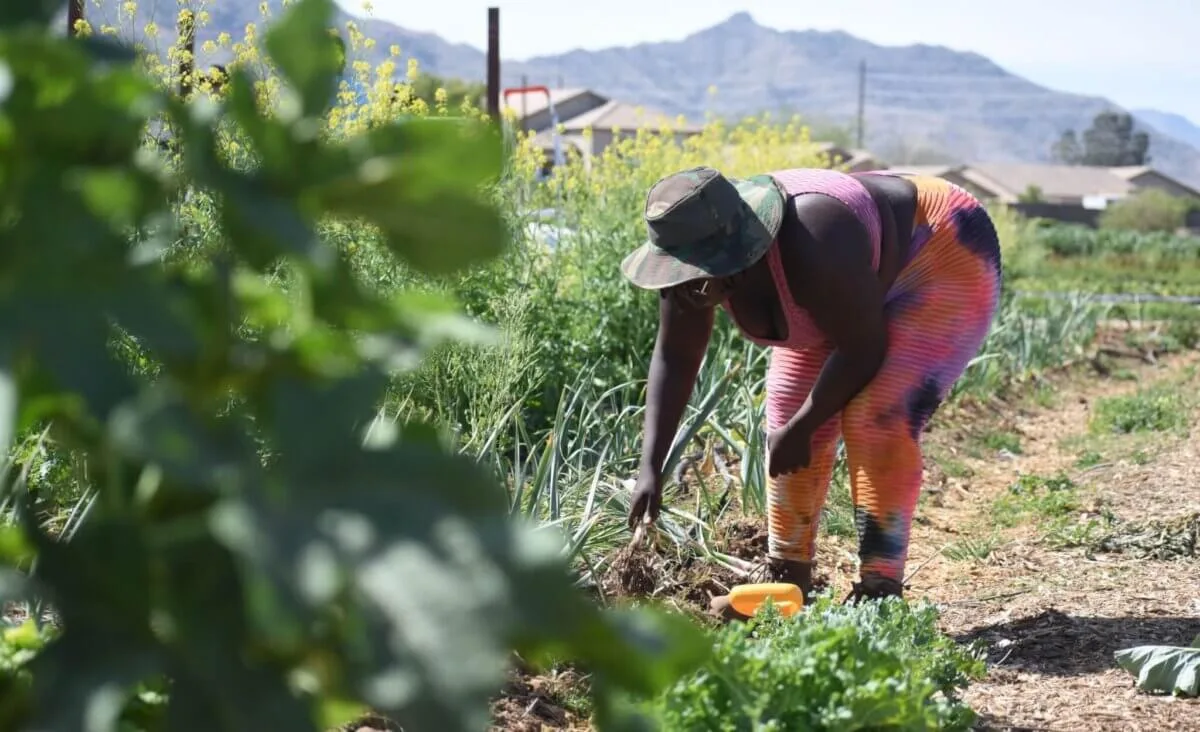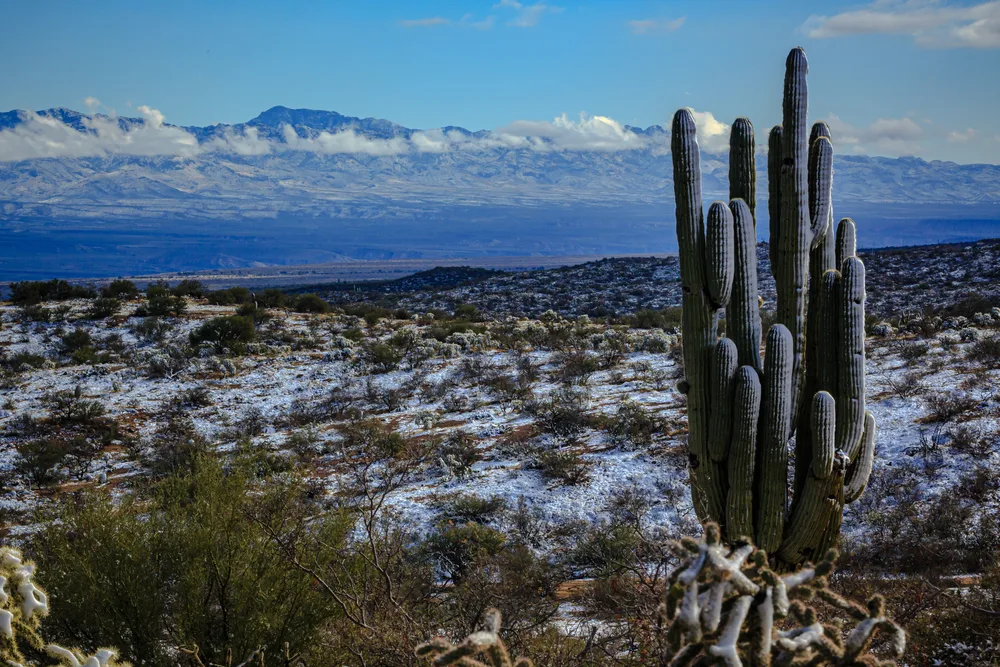
Angelica “Jelly” Willis-Smith, one of nine fellows of the city’s Urban Agriculture Fellowship Program, harvests garlic from the Project Roots garden in Phoenix on March 25, 2022. “Gardening is like you’re God for a day,” Willis-Smith says. “You get to plant these seeds, you get to cultivate them, you get to decide where they get to go, you get to cultivate and create life.” (Photo by Hope O’Brien/Cronkite News)
PHOENIX – The 19-acre garden plot is tucked between the homes of south Phoenix and overlooked by South Mountain. On a recent Friday, Angelica Willis-Smith harvested garlic and carrots to sell at the Downtown Phoenix Farmers Market.
Willis-Smith, who’s known as “Jelly” in the garden, is one of nine fellows in the Phoenix Office of Environmental Programs’ Urban Agriculture Fellowship Program, which places Phoenix residents ages 18 to 24 with urban farms to train them.
According to the U.S. Department of Agriculture, urban agriculture includes community gardens, warehouse and other farming innovations that are cultivated, processed, and distributed in “urban and suburban settings.”
Willis-Smith will spend up to 20 hours a week for 50 weeks at Project Roots, where she’ll learn to plant, harvest and cultivate the city’s urban cropland. The nonprofit Project Roots aims to educate and feed the community through urban agriculture.

The fellowship program, funded by the American Rescue Plan, was created to address challenges brought to light through interviews with 22 urban farmers in Phoenix during the COVID-19 pandemic, the city’s Joseph Rossell said.
“We began to understand that there were some challenges finding apprentices and finding that next-generation workforce when it comes to urban agriculture,” said Rossell, food systems program manager for Phoenix.
RELATED: How an Arizona Engineer Is Trying To Heal the Land and Protect Water
According to the USDA’s Arizona 2017 Census of Agriculture, the average age of farm producers in Arizona is nearly 60. Producers include people involved in making decisions for farm operations, the report said.
Maricopa County had 1,874 farms as of 2017, and 1,144 were small operations of 1 to 9 acres, according to the report.
Willis-Smith, 24, hopes the fellowship can steer younger Arizonans into urban farming.
“It’s empowering to know that I can set a trend that is for the betterment of everybody,” Willis-Smith said.
Feeding a community, training a new generation
Bridget Pettis, who played for the Phoenix Mercury and later coached in the WNBA, left her sports career to co-found Project Roots, a nonprofit she said was created to properly feed the community, in 2019.
“I was donating to the food bank, and I realized I was having a hard time just giving canned foods to people, and I didn’t feel like it was really doing the things it needed to do, which is to nourish our body,” Pettis recalled.
Enter Project Roots, which grows fresh produce year-round to feed the needy and people experiencing homelessness through farmers markets and partnerships with local food banks.

The half-acre Project Roots garden is at Spaces of Opportunity, a 19-acre plot in south Phoenix that supports multiple small gardens and incubator farms.
Dionne Washington, the treasurer and co-founder of Project Roots, said the organization hopes to expand by creating a mobile kitchen that can bring fresh produce directly to the community.
Pettis sees the future of urban farming – including training aspiring farmers like Willis-Smith – as a way to become sustainable and reconnect with the land.
“It’s giving our next generation the opportunity to learn about growing food again, about the land, about being sustainable,” Pettis said. “What we’re doing here is something that the whole world connects to: everybody eats food, everybody needs to nourish their bodies, and this is what this space is bringing people back to.”
Looking for the latest Arizona news? Sign up for our FREE daily newsletter.
Politics

Trump says he’s pro-worker. His record says otherwise.
During his time on the campaign trail, Donald Trump has sought to refashion his record and image as being a pro-worker candidate—one that wants to...

VIDEO: Hundreds show up in Scottsdale to support reproductive rights
@coppercourier Days after the Arizona Supreme Court ruled to enforce a long-dormant law that bans nearly all abortions, hundreds took part in a...
Local News

US court rejects a request by tribes to block $10B energy transmission project in Arizona
In Arizona, work was halted briefly in November amid pleas by tribes to review environmental approvals for the San Pedro Valley. ALBUQUERQUE, N.M....

What to know about Trump’s legal issues
Over the past year, former president Donald Trump has become the center of not one, not two, not three, but four criminal investigations, at both...




